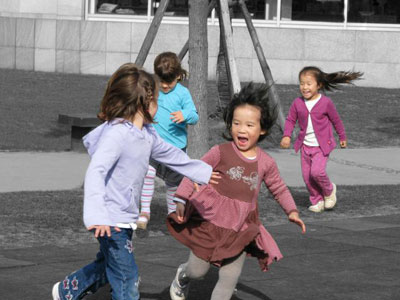All Nonfiction
- Bullying
- Books
- Academic
- Author Interviews
- Celebrity interviews
- College Articles
- College Essays
- Educator of the Year
- Heroes
- Interviews
- Memoir
- Personal Experience
- Sports
- Travel & Culture
All Opinions
- Bullying
- Current Events / Politics
- Discrimination
- Drugs / Alcohol / Smoking
- Entertainment / Celebrities
- Environment
- Love / Relationships
- Movies / Music / TV
- Pop Culture / Trends
- School / College
- Social Issues / Civics
- Spirituality / Religion
- Sports / Hobbies
All Hot Topics
- Bullying
- Community Service
- Environment
- Health
- Letters to the Editor
- Pride & Prejudice
- What Matters
- Back
Summer Guide
- Program Links
- Program Reviews
- Back
College Guide
- College Links
- College Reviews
- College Essays
- College Articles
- Back
Autism
Autism is a mental condition usually present from early childhood characterized by difficulty in communicating and forming relationships with other people and in using language and other abstract concepts. Autism spectrum disorder and autism are both general terms for a group of complex disorders of brain development. These disorders vary degrees by difficulties in social interaction with verbal and nonverbal communication and repetitive behaviors. Autism spectrum disorder can be associated with intellectual disability, difficulties in motor coordination and physical health issues such as sleep and gastrointestinal disturbances. Autism appears in very early brain development. The most obvious signs of autism and symptoms of autism tend to develop between the ages of 2 to 3 years. (Speaks)
What Causes Autism?
There is no cause of autism just as there is no type of autism, scientists have identified a number of rare gene changes or mutations associated with autism. Most cases of autism appear to be caused by a combination of autism risk genes and environmental factors influencing early brain development. People with ASD have found irregularities in several regions of the brain, other studies suggest that people have abnormal levels of serotonin or other neurotransmitters in the brain. In the presence of a genetic predisposition to autism a number of nongenetic stresses appear to further increase a child’s risk. The clearest evidence of this autism risk factor involve events before and during birth. They include advanced parental age at time of conception, maternal illness during pregnancy and certain difficulties during birth involving periods of oxygen deprivation to the baby’s brain. A woman can reduce her risk of having a child with autism by taking prenatal vitamins containing folic acid during months before and after conception. (Staff)
Treatment for Autism
Even though there is no cure for Autism there are therapies that are designed to remedy specific symptoms and bring improvement. Most health care professionals agree that the earlier they take the child to therapies the better for their health. Some therapies are educational/behavioral interventions, medications, and other therapies. In educational/behavioral interventions therapists use a highly structured skill oriented training session to help children develop social and language skills. Doctors may prescribe medications to treat specific autism-related symptoms such as anxiety, depression, or obsessive-compulsive disorder. Medication used to treat people with attention deficit disorder can be used effectively to help decrease impulsivity and hyperactivity.

Similar Articles
JOIN THE DISCUSSION
This article has 0 comments.

I was inspired by many children that I know that have Autism and someday I would like to help them and their family.